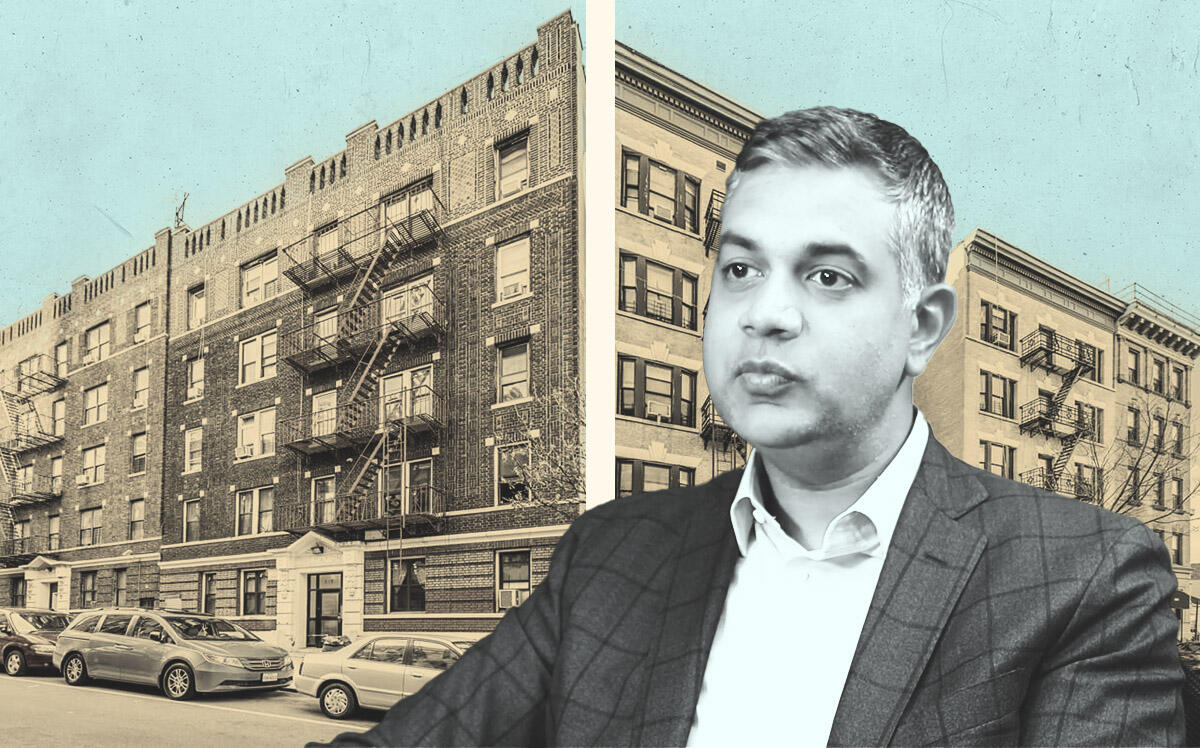Two and a half years later, Covid is still spitting out real estate casualties.
The latest are Brooklyn-based investor Allen Stein and his lender, Customers Bank.
Late last week, Customers sued Stein and his co-guarantor Leopold Schwimmer to foreclose on two Upper Manhattan rental buildings, claiming their nearly $12 million mortgage was in default.
The borrowers on the mortgages at 517 West 180th Street and 570 West 182nd Street had tried to beat the Pennsylvania-based bank to the punch, requesting six weeks earlier that a judge declare that the default claims settled.
The dispute, both parties agree, stems from Covid.
In the initial suit, 517 West Properties and 570 West Properties, two limited liability companies affiliated with Schwimmer, acknowledged that the pandemic had taken a whack at both buildings’ rent rolls. Renters left the city in droves in 2020 and early 2021, and moratoriums prevented landlords from evicting tenants who stopped paying.
Read more



But “diminished revenues” aside, Schwimmer’s filing claims he and Stein met their debt service obligations.
What the owners did struggle with were property taxes. Their suit says the LLCs fell behind on payments but “promptly and effectively” addressed tax debts by entering into two agreements with the city.
While the borrowers patted themselves on the back for “diligence, sound management and good faith in weathering the storms brought about by the Covid-19 pandemic,” Customers was not impressed, declaring a default in August 2021.
The bank claimed the borrowers were behind on property taxes and water bills, were below the required debt service coverage ratio and hadn’t provided necessary financial documents. The borrowers argue that the bank did not specify what documents it needed.
The default spiked the landlords’ interest rate to 24 percent from 3.5 percent, throwing the buildings’ budgets deep into the red.
But according to the LLCs’ filing, Stein and Schwimmer swiftly righted things.
The borrowers explained they’d received nearly $150,000 in emergency rent relief, bringing their debt service coverage ratio within the limits required by the loan, and by August 2021 had made lump-sum tax payments of more than $100,000.
Last November, Stein and Schwimmer requested that the bank reinstate the 3.5 percent interest rate because they had cured all alleged defaults. And by mid-December, the bank issued a monthly statement confirming it had done so, the owners’ suit alleges.
The borrowers said they continued to make payments on the loan from January through March and the bank issued statements “confirming the application of those monthly payments at the ordinary interest rate.”
But in April, the bank dropped a bombshell on the borrowers. It sent notice that their loan remained in default, that the entire accelerated balance was due and that default interest had been accruing on the balance since August 2021.
Customers’ lawsuit details its side of the story.
The bank alleges that in the 28 months between May 2020 and August 2022, Stein and Schwimmer made 22 late payments, incurring over $58,000 in penalty charges. Moreover, the investors failed to pay property taxes and water bills on time and fell below the minimum debt service coverage ratio stipulated by the mortgage agreement.
Court documents add that Stein and Schwimmer missed the three-month window to send financial statements for 2020 that disclosed the earnings and expenses of their mortgaged properties.
And Customers alleges that it sent the borrowers default notices in August, October and November 2021, each time giving them another chance to “cure the events of default.” But they didn’t.
As a result, Customers attempted to exercise its right to collect the buildings’ rents, which total $1.1 million each year. But Stein refused, triggering another default, according to the bank.
After the final default notice in November, the bank claims it gave Stein one last chance to pay off the loan, either by refinancing with another lender or selling the buildings.
But Stein did neither, instead making “sporadic partial payments on the accelerated debt for the next five months,” Customers’ suit reads.
As it stands, Customers claims Stein and Schwimmer owe $224,000 in property taxes and water charges on the two buildings, and the bank never accepted their tax repayment plan as a cure or waived any event of default.
For good measure, the bank also alleges that Stein neglected maintenance and repair issues in both buildings, resulting in leaks, defective self-closing doors, uncorrected lead-based paint hazards, broken radiators and over $18,000 in environmental control board violations.
In total, the bank claims Stein and Schwimmer owe over $13.6 million, including default-rate interest and attorney’s fees.
Schwimmer and Stein, meanwhile, are asking the court to confirm that they are not in default and not subject to default interest.
Neither the bank’s attorneys nor the LLCs immediately responded to a request for comment.
